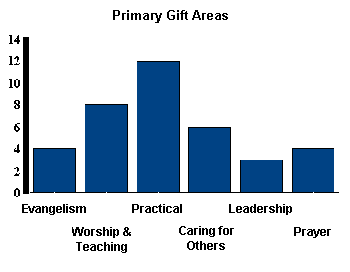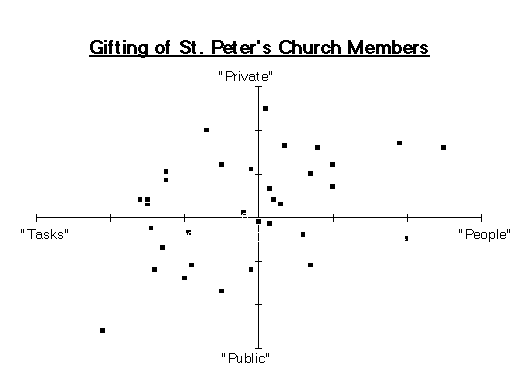
Taking a whole church overview |
|
Helping people develop their gifts and talents and use them in minstry is primarily a one to one function. Nevertheless, understanding the gifting of a complete church can be invaluable to a leadership team. This can identify possible new minstry areas, possible suitable candidates for forthcoming ministry opportunities and be of great help in planning whole church training sessions and programmes. If a gift sheet such as the "Gifts and Services" tool is used widely within the church, this can yield invaluable data to the church leadership. For example, the graph below shows one church's spread of gifts. Each gift area is supported by at least three people having it as their major gift. |
|
A second stage of the analysis mapped out church members on a two-dimensional plot. (below) The horizontal axis is a "tasks" vs "people" scoring, adding the scores for Caring for Others, Intercession & Ministry and Evangelism, and subtracting the scores for the other three elements. Those having a positive score on this axis are more comfortable on "people" ministries, whilst those with negative scores are more likely to be "task" people. However, this indicates natural strength, and any attempt to pigeonhole people must be avoided by both individuals and the leadership- "I'm a task person, I couldn't possibly go and talk to that new family." |
|
|
The vertical axis is
"Private" vs "Public" gifting - scored by summing Practical Help,
Intercession & Ministry and Caring for Others and subtracting the other three. Those
with a positive score are people happier working by themselves, or with people in a
private setting, whilst those with a negative score are more likely to be willing to take
on an "upfront" role of some kind. |
|


